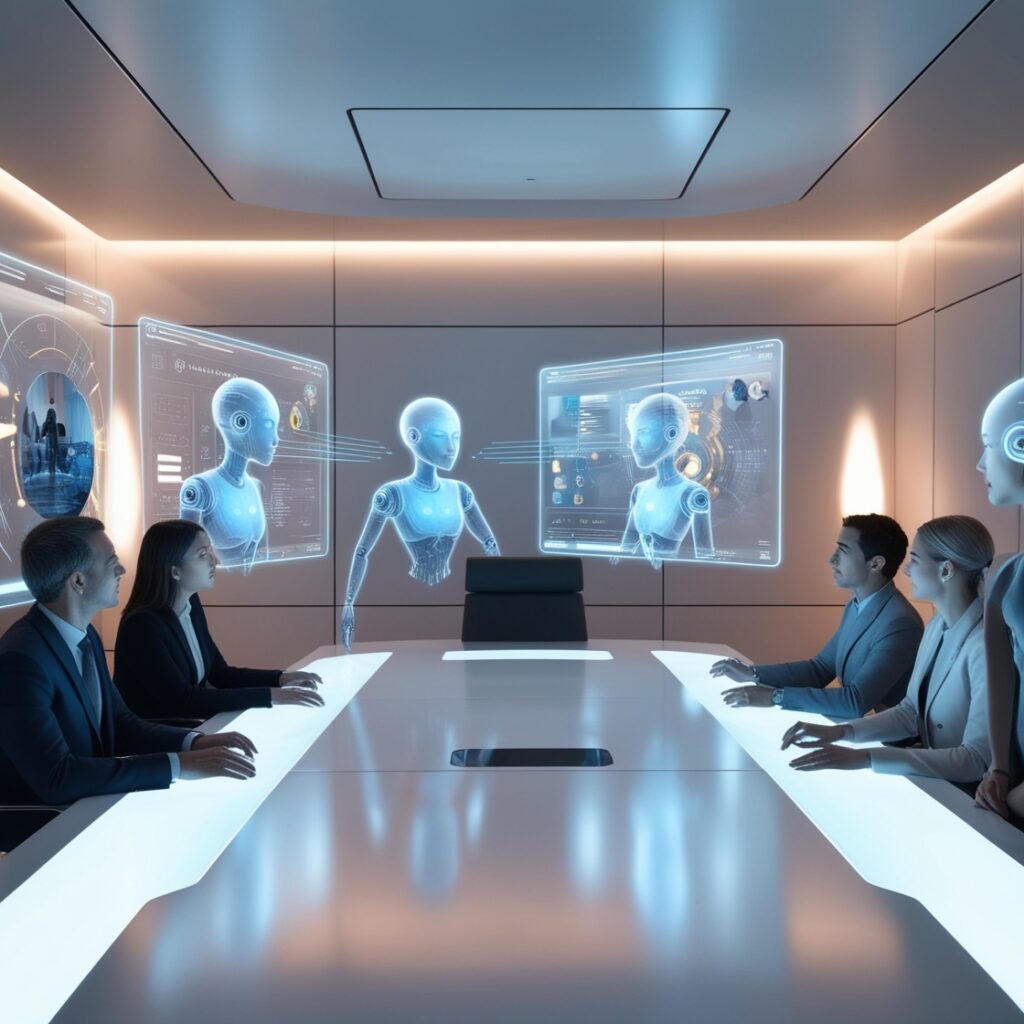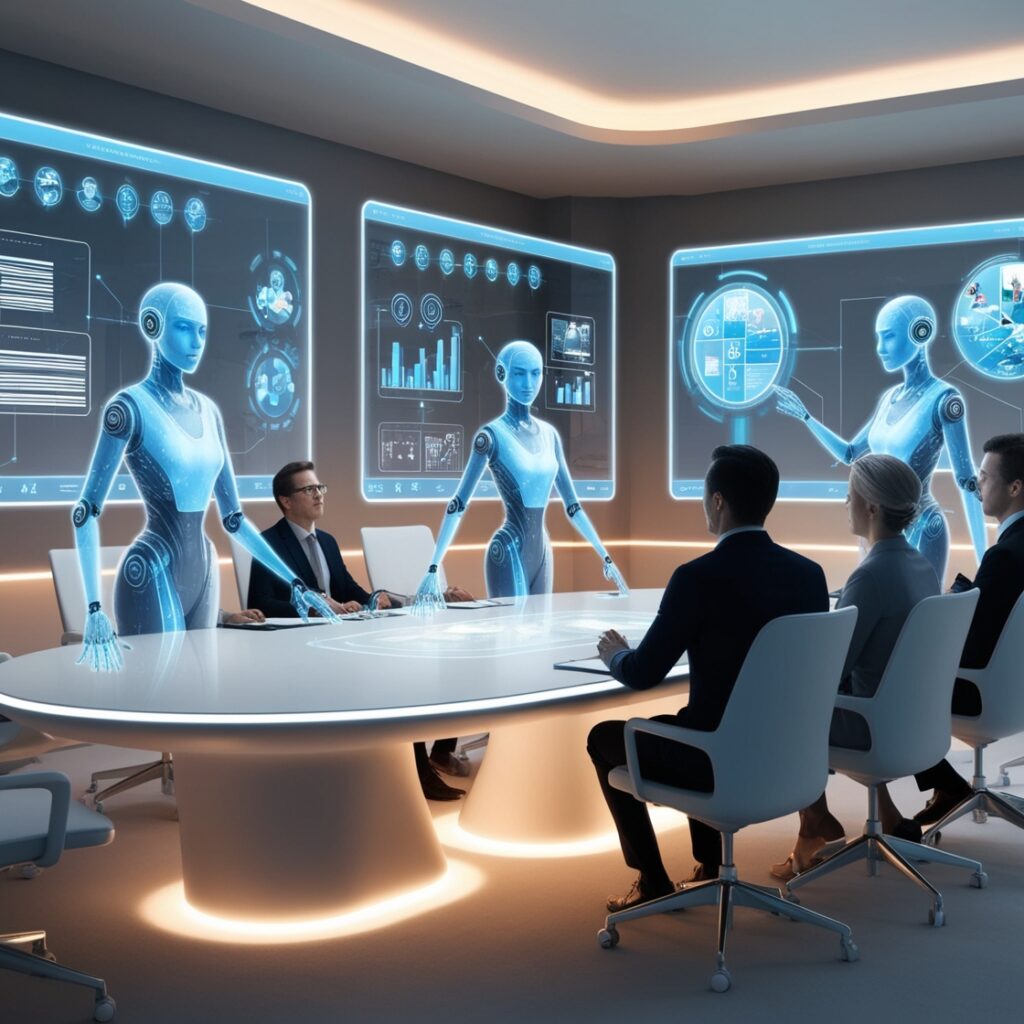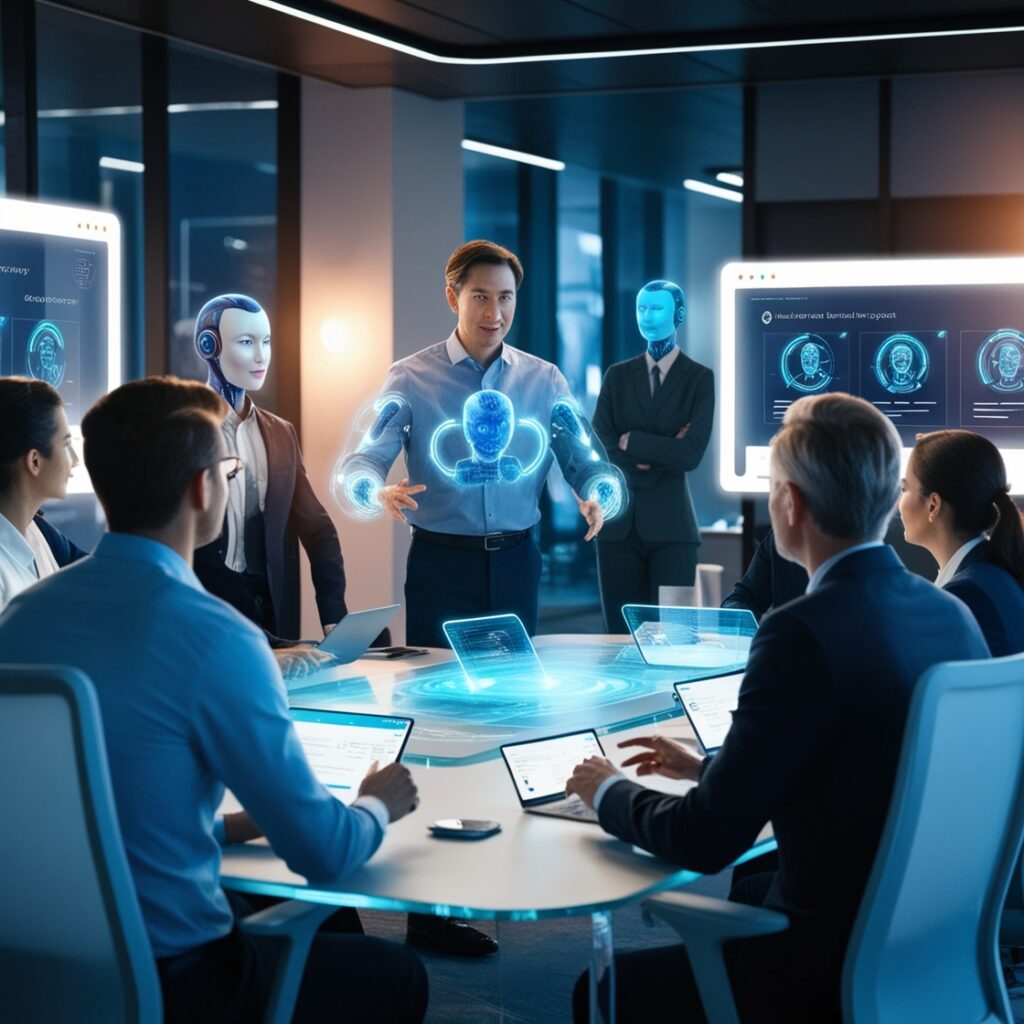Artificial intelligence is no longer a thing of the future but is now an integral part of our daily lives and workplaces. Years have passed with waves upon waves of AI development, every one bringing forth transformative capabilities that revise industries and jobs. And now we are at the forefront of its most revolutionary moment: Agentic AI
But what is agentic AI, how is it different, and why should you care? Let’s break it down step by step to give you some answers and demystify this exciting technology.
What are the three waves of AI and where does agentic AI fit in?
To understand agentic AI, I start with looking at the journey of artificial intelligence through the three waves:
Predictive AI (First Wave)
Prediction was the core focus of AI in its early phases that involved extensive research and analysis over large data sets that later would predict trends and expect anomalies and be able to guide businesses to make decisions based on data. For example, AI can predict the rate at which customers were going to churn out, sales trends, or equipment failure in manufacturing.
Generative AI (Second Wave)
The next generation of this is generative AI, which brought an ability to create something new. This generation brought in technologies such as ChatGPT, where one can write essays, generate pictures, or even hold natural conversations. Businesses began to use generative AI for personalized marketing, content creation, and enhanced user interactions.
Agentic AI (Third Wave)
Autonomous AI pushes things forward by adding autonomy to the AI systems. These AI agents do not only predict or generate but also act. They can perform elaborate tasks autonomously, interact with other AI agents, and make decisions in predetermined bounds. Think of them as virtual workers who can handle entire workflows without constant human supervision.
How does agentic AI differ from older AI technologies?
The hallmark of agentic AI is that it can act. Here’s where it differs from the others:
Autonomous Task Execution: Unlike the earlier AI tools that, after all, needed a prompt or human interference, agentic AI can be left to work autonomously. It identifies tasks, discerns the best course of action, and executes them without handholding.
Acting with Other AI Agents: Agentic AI is never a lonely operator. They can be used collaboratively to achieve complex goals. For instance, one could compile feedback from customers while another work out an improvement plan and implement their plan together.
Dynamic Decision-Making: These agents have in-built architectures that allow them to review a set of options and make a decision they will execute. As an example, an AI agent at the level of customer service could decide whether to give a refund, handle an exchange, or escalate the case to a human supervisor.
You will have an AI assistant to determine who needs to be contacted, write the email, send it, and then follow- up on all of this without your direct involvement.

Which jobs in today’s workplaces will be replaced by agentic AI?
Agentic AI is not just a tool, it’s a revolutionary workforce. Let’s explore some of the real-world applications:
Customer Service Representatives: AI can now handle customer inquiries, beginning to end. So if a customer wants to return a product, the AI agent can guide him throughout the entire process up to issuance of refund, after which it could also arrange a pickup.
Sales Representatives: Picture an AI agent calling potential leads, answering their questions, and scheduling meetings with human sales executives.
AI agents could automatically initiate employee onboarding by collecting documents, account setup, and answering questions a new hire might have.
Generally speaking, AI agents are ready to take the burden off of repetitive, routine tasks that humans can concentrate on creative and strategizing work.
Will the agentic AI replace jobs, or will it create new ones?
Something very important which comes along with agentic AI is the raising of a very critical question: Will it replace jobs? The answer here is much more subtle than a flat yes or no.
Automation of repetitive tasks: Yes, some routine jobs will be fully automated. Any role that’s mainly repetitive work – like data entry or very basic customer service – will lose human participation.
Alteration of existing jobs: Agentic AI is going to replace jobs rather than eliminate them. For example, human representatives are going to be responsible for managing AI agents instead of having to handle customer inquiries manually and taking over only for the complex cases.
Emergence of New Jobs: The agentic AI will introduce fully new job categories as follows: – AI Trainers: Individuals training the AI agents to perform specific tasks effectively.
AI Workflow Orchestrators: These are specialists who design, build, and supervise AI workflows involving multiple AI agents.
AI Ethics Compliance Officers: These are experts that ensure the AI system does not violate ethical or legal constraints.
In summary, though some jobs may change, there exists a future in the agentic AI for a person to learn and develop.
Which industries will be most impacted by agentic AI?
The potential for agentic AI is diverse, and the areas of application run across nearly every industry. Some examples follow:
Healthcare: AI agents could include devising prescription plans, scheduling appointments, and tracking patient recovery progress.
Finance: These agents might handle fraud investigations, automate claim processing, or negotiate contracts.
Retail: From guiding the customer in choosing items to managing returns, AI agents can revolutionize the shopping experience.
Logistics: AI agents can be used to optimize supply chains, track shipments, and coordinate deliveries much better than ever.
The list is virtually endless, hence making agentic AI a flexible tool for any industry out there.

How will agentic AI affect teamwork and collaboration?
Agentic AI is not only a replacement for the army of manual laborers; it is also a collaborative partner. Imagine this scenario:
In a meeting with a team, several AI agents are involved. One can present the latest sales figures; another can analyze customer feedback trend patterns; yet another can provide actionable recommendations.
Following the discussion, an AI agent summarizes the outcome of the discussion, sets follow-up action items, and tracks completion.
This integrated or almost embedded nature of AI within human workflows can significantly enhance the efficiency with which teams concentrate their efforts on innovation and problem-solving.
What safeguards are in place for agentic AI?
With great power comes great responsibility: An organization looking to make the most of agentic AI must focus on the following:
Transparent: It should at all times be clear, whether one is talking to a human or an AI agent.
Boundaries Defined: AI agents should operate within defined parameters to avoid negative side effects. For instance, the AI in financial decisions has to comply with the norms.
Human Overseeing of Decision-Making: Decisions requiring bigger transactions and sensitive customer complaints must pass through human approval.
With these above precautions in place, businesses can enjoy the agentic AI without the risks.
How can business and individual prepare for agentic AI?
Preparation holds the key to success in the age of agentic AI. Here’s how to start:
Educate and Upskill: Professionals must be trained to coexist with AI; they need to know its capabilities and limitations.
Redesign Workflows: Organizations must map out jobs that could be delegated to AI agents such that humans retain critical decision-making functions.
Ethical Use: Transparency, fairness, and accountability should guide every deployment of AI.
It’s less about technology and more about reimagining work.
Imagine a world in which every professional is accompanied by his or her AI assistant. Pain-staking work such as appointment scheduling, email work, or statistical analysis just free up more time for creative and strategic efforts.
At the organizational level, fleets of AI agents will reduce redundant operations, improve decisions, and facilitate innovation. The borderline between human and AI workflow disappears, and efficiency and creativity blossom in a collaborative environment.
Conclusion
Agentic AI is not just the next technological revolution; rather, it is something that will redefine the way people live and work. As they can act independently, interact with humans and other AI agents, and learn from their environment, these systems promise to make workplaces more efficient, innovative, and future ready.
This is not a question of whether agentic AI will enter our lives, but rather how prepared we are to take on the adventure. Do you have what it takes to step into this new era and seize the power of agentic AI for a smarter, more productive future?
Agentic AI FAQs
What is agentic AI?
Agentic AI refers to the new generation of artificial intelligence that performs any task, interactively interacts with other AI agents, and makes decisions within provided boundaries without much human supervision.
What is the difference of agentic AI from traditional AI?
Unlike predictive or generative AI, which only predicts or generates content, agentic AI can act. It performs complicated tasks proactively, cooperates with other AI systems, even makes dynamic decisions. This means more autonomy.
What are the three waves of AI?
The three waves of AI include:
1. Predictive AI: Focused on the process of analyzing data to predict outcomes.
2. Generative AI: Can generate content, like text or images or conversations .
3. Agentic AI: An age where AI acts on its own to complete its tasks and solve the problem .
What are the potential roles of AI agents at work? .
AI agents can be used in multiple roles such as the ones listed below: .
- Customer Service Representatives
- Sales Assistants
- HR Support Agents
- Data Analysts
- Workflow coördinators
It will replace routine and redundant jobs by the automation process, which lets humans perform planning and creative tasks.
Will agentic AI substitute human jobs?
Most probably not. Agentic AI will rather change jobs than substitute them. New human jobs will appear – for example, AI trainers and workflow orchestrators, thus those human beings ready to adapt may find employment.
Which sectors will be the most affected by agentic AI?
Agentic AI may be deployed on numerous sectors, such as:
Healthcare: Support in care and appointments.
Finance: Automate claims and dispute resolutions.
Retail: Answering customer queries and handling returns.
Logistics: Optimization of the supply chain and delivery chain.
How do agentic AIs interact with humans and other AI agents?
Agentic AI can interact with humans and other AI agents on tasks. For instance, in a meeting, it can offer insights, set follow-up tasks, and track their accomplishment. This interaction further boosts efficiency and decision-making.
What must be protected with regards to agentic AI?
Key safeguards are:
Transparency: The user should be aware when using AI.
Boundaries: AI agents should have concrete rules for the activities they conduct.
Human Oversight: Retaining the control of a few decisions within human hands.
What should organizations prepare for in agentic AI?
Organizations can start preparing by:
Supplying education for its employees on its companies’ capabilities in AI.
Realigning the organizational workflows to equip them for cooperation with AI agents.
Formulating rules and regulations on organizational ethics concerning AI systems .
What skills will professionals need to effectively work in an AI-enabled workplace?
Professionals will need to comprehend AI’s strengths and limitations.
Learn when to assign tasks to AI agents and how much trust to place in them.
Develop proficiency in coordinating a very successful human-AI partnership.
Stay up to date on emerging AI technology and, in turn, innovative procedures that guarantee adherence to moral principles.
What will agentic AI do for work’s future?
It is through the growth of a worker who will increasingly rely on AI agents to enable smooth human-AI collaboration that will spawn workplaces where people – with their strategic roles – work closer to AI technology, opening up rooms for more innovation, efficiency, and high productivity.
Why does agentic AI matter?
Agentic AI is a giant step forward in how we harness technology to solve problems, automate workflows, and increase our productivity; this will be the transformative force that will redefine industries, roles, and the way we work.
